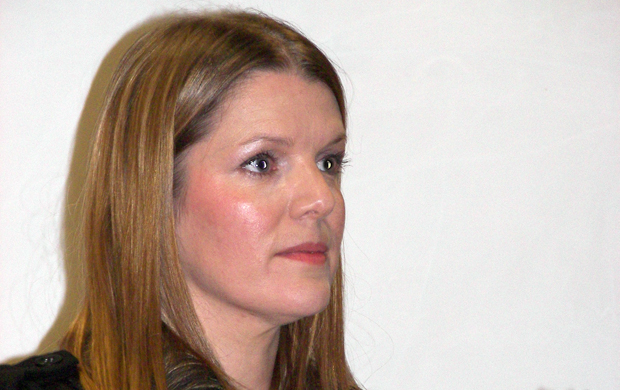— Words by Marcell Grant, video produced by Jonathan Cresswell
“It does seem that privacy is dead,” said Tessa Mayes, top investigative journalist.
“We’re talking about companies invading all of our privacy. They could get access, then, to our private sources, our notes… so there is a tension in societies now,” she said.
Mayes spoke at the University of Lincoln’s Cargill Lecture Theatre on November 8th, in a speech entitled “The Transparency Wars: Celebrity Culture and Privacy”.
She has worked for a wide range of outlets including BBC’s Panorama, Channel 4, and The Guardian, and believes that the privacy of everybody, not just celebrities, is a serious issue.
The government’s willingness to appear transparent is a veiled intention to encourage a “culture of transparency” in society, she claims, adding that ready access to government data breeds “lazyness in journalism”.
On the website Wikileaks, Mayes said: “Journalism is never just about presenting a tsunami of information… and just leaving it there.” She continued, saying that “leaking” will never provide the same analytical service that real journalism does. Leaking and journalism should be seen as entirely separate, Mayes argues.
If the two are blurred, she believes journalists may find themselves penalised for the leak — even if they played no part in the release of confidential information.
When asked to draw an ethical line defining good and bad journalism, Mayes said: “Journalism is an approach to all aspects of human life… in search of the truth about our world.” 
